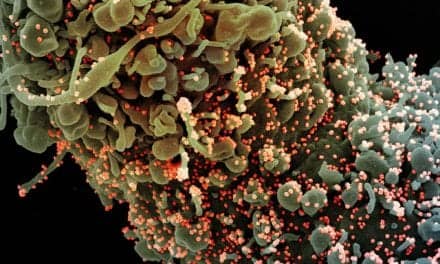The American Academy of Pediatrics (AAP) has announced a new initiative designed to allow pediatricians across the country to pilot a series of quality improvement programs to effectively address childhood asthma—the top chronic disease affecting kids. The initiative comes with the help of a grant from the Merck Childhood Asthma Network Inc (MCAN). The AAP addresses pediatric issues through 59 chapters (organized groups of pediatricians and other health care professionals working to achieve AAP goals in their communities) across the United States.
According to an announcement from the AAP, two out of three children with moderate or severe asthma do not receive adequate or recommended treatment for controlling asthma, even though evidence-based treatment guidelines from the National Heart, Lung, and Blood Institute (NHLBI) are in place. The Comprehensive Asthma Program (CAP) aims to help pediatricians implement the NHBLI guidelines.
“Growing numbers of children are suffering from asthma. This initiative will advance the care of these children by helping providers use the latest techniques of care in the most efficient and effective manner,” said AAP president Judith Palfrey, MD, FAAP in the announcement.
The two-part program includes:
• Chapter Quality Network Asthma Pilot Project – Chapters in four states with disproportionately high rates of asthma (Alabama, Maine, Ohio and Oregon) are working with nearly 60 practices to transform their asthma care model. The 18-month program will use a chronic care treatment model and quality improvement strategies to implement the guidelines and improve the percentage of patients with well controlled asthma.
• Medical Home Chapter Champions Program on Asthma – Will focus on care within the context of a medical home, an approach that provides comprehensive care by facilitating partnerships with the patient, pediatrician, specialists and emergency services, which, according to the AAP, has the potential to improve care for children with asthma.
CAP will educate pediatricians across the country on implementation of the latest guidelines from the NHLBI, which stress four main components: diagnosing and assessing the severity of asthma to monitor whether asthma control is achieved and maintained; creating a partnership between the patient and the health care provider involved in asthma care; controlling environmental factors and associated conditions that affect asthma; and using proper medication.
“Children with asthma and their families often need professional support from pediatricians to manage asthma: a complex, chronic disease,” said Floyd Malveaux, MD, PhD, executive director of MCAN. “The CAP program will help pediatricians across the nation adopt proven best practices and clinical standards that will result in better care and quality of life for affected children and families. This is especially true for children living in medically underserved and impoverished communities where asthma rates are higher and ER visits and hospitalizations remain at excessive levels.”
The AAP is currently recruiting Medical Home Chapter Champions from all chapters to promote and facilitate the dissemination of best practices related to the implementation of the NHLBI asthma guidelines within medical homes.









